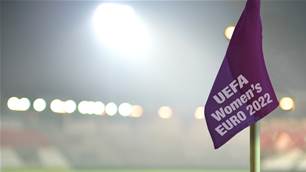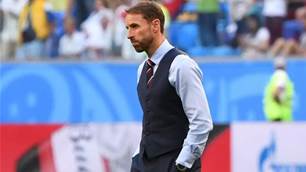WHEN he boarded the Virgin charter at Heathrow, bound for Johannesburg, with a revised contract in his pocket, bursting with optimism for what lay ahead, if Fabio Capello had been told what would happen, he probably would not have believed it.
That a team capable of winning nine out of their 10 qualifiers, capable of beating Germany in Berlin, capable of drilling nine goals past Croatia in two memorable meetings should return home, humiliated and broken, having won just once and scored on only three occasions, Capello would have thought it was someone's idea of a bad joke.
But the joke was on the Italian, whose impressive reputation was shot to pieces in a three-week period when it seemed everything he did was wrong.
He was criticised for being too strict - and too lenient. His team selections were haphazard, the manner of his announcements supposedly created confusion. He didn't play Wayne Rooney as a lone striker. He didn't listen to his players. What were his strengths now became big weaknesses.
"I am a manager. I know what happens," said Capello.
"If you win, everything is OK. When you lose people find mistakes."
The problem for Capello is that no-one had to look very far.
From going back on previous statements about not picking injured players - a mantra he repeated and repeated until he realised waiting for Gareth Barry to recover from an ankle injury and picking Ledley King even though he does not train were necessities rather than options - to the unsettling effect it must have had when Capello called Jamie Carragher out of retirement and tried to do the same thing with Paul Scholes.
How could this be viewed any other way than a slap in the face to players who had served Capello before, confirmation that they simply were not good enough?
Leaving Theo Walcott at home now looks like a mistake, the absence of Adam Johnson even more so.
Yet margins at the highest level are exceptionally fine.
What if Robert Green had not let Clint Dempsey's harmless shot slip through his fingers.
What if Wayne Rooney's effort against Slovenia had brought him his first goal of the tournament instead of thudding against the post.
What if Landon Donovan had not scored for the United States in stoppage time of their final group match.
What if those Uruguayan officials had spotted what everyone else seemed to see, that Frank Lampard's shot had bounced well over the line.
History re-writing just one of these moments could have put England onto either an easier path, or given them a surer footing on the one they were on.
It did not happen.
"I am really disappointed for the supporters, who spent a lot of money to be in South Africa," said Capello.
"The expectation was really big and the performance was no good."
In the immediate aftermath a crushing defeat by Germany, it seemed like Capello could not survive.
But instant calls for resignation were rebuffed and as the dust began to settle, a harsh reality arrived as well.
Getting rid of the Italian was going to be a costly business. As it turns out, not even the pre-tournament scrapping of the famous clause made any difference to that.
And who do you get in his place? Once Roy Hodgson had joined Liverpool, the options were alarmingly thin.
The squad spirit might have been fractured. But is that really a bad thing?
After all, the so-called Golden Generation are now either past, or quickly approaching 30 and are yet to even come close in a major tournament, let alone win one.
This World Cup highlighted all that is wrong with the English game and the road to redemption is going to be painful.
Capello has the pedigree to deal with that.
Anyone who expects him to be collecting silverware in two years' time is deluded.
But once Capello has finished his work, the minimum we can expect is for the debris from this footballing earthquake to have been cleared, so his successor - which must be an Englishman - should at least have a decent idea what direction they are headed.
But the joke was on the Italian, whose impressive reputation was shot to pieces in a three-week period when it seemed everything he did was wrong.
He was criticised for being too strict - and too lenient. His team selections were haphazard, the manner of his announcements supposedly created confusion. He didn't play Wayne Rooney as a lone striker. He didn't listen to his players. What were his strengths now became big weaknesses.
"I am a manager. I know what happens," said Capello.
"If you win, everything is OK. When you lose people find mistakes."
The problem for Capello is that no-one had to look very far.
From going back on previous statements about not picking injured players - a mantra he repeated and repeated until he realised waiting for Gareth Barry to recover from an ankle injury and picking Ledley King even though he does not train were necessities rather than options - to the unsettling effect it must have had when Capello called Jamie Carragher out of retirement and tried to do the same thing with Paul Scholes.
How could this be viewed any other way than a slap in the face to players who had served Capello before, confirmation that they simply were not good enough?
Leaving Theo Walcott at home now looks like a mistake, the absence of Adam Johnson even more so.
Yet margins at the highest level are exceptionally fine.
What if Robert Green had not let Clint Dempsey's harmless shot slip through his fingers.
What if Wayne Rooney's effort against Slovenia had brought him his first goal of the tournament instead of thudding against the post.
What if Landon Donovan had not scored for the United States in stoppage time of their final group match.
What if those Uruguayan officials had spotted what everyone else seemed to see, that Frank Lampard's shot had bounced well over the line.
History re-writing just one of these moments could have put England onto either an easier path, or given them a surer footing on the one they were on.
It did not happen.
"I am really disappointed for the supporters, who spent a lot of money to be in South Africa," said Capello.
"The expectation was really big and the performance was no good."
In the immediate aftermath a crushing defeat by Germany, it seemed like Capello could not survive.
But instant calls for resignation were rebuffed and as the dust began to settle, a harsh reality arrived as well.
Getting rid of the Italian was going to be a costly business. As it turns out, not even the pre-tournament scrapping of the famous clause made any difference to that.
And who do you get in his place? Once Roy Hodgson had joined Liverpool, the options were alarmingly thin.
The squad spirit might have been fractured. But is that really a bad thing?
After all, the so-called Golden Generation are now either past, or quickly approaching 30 and are yet to even come close in a major tournament, let alone win one.
This World Cup highlighted all that is wrong with the English game and the road to redemption is going to be painful.
Capello has the pedigree to deal with that.
Anyone who expects him to be collecting silverware in two years' time is deluded.
But once Capello has finished his work, the minimum we can expect is for the debris from this footballing earthquake to have been cleared, so his successor - which must be an Englishman - should at least have a decent idea what direction they are headed.
Copyright (c) Press Association
Related Articles

World Cup favourites England have one gaping question left to answer

Rampant England reach Women's Euros final













